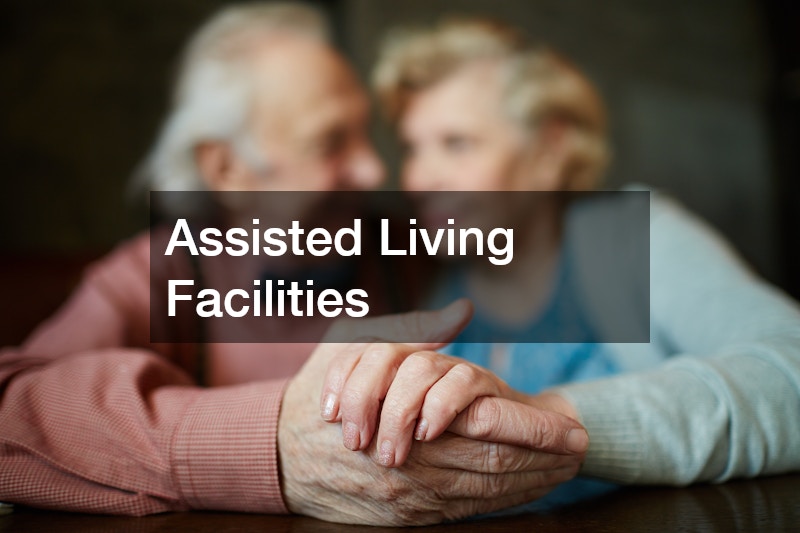Elder care is a crucial aspect of ensuring the well-being and quality of life for aging individuals. As people age, they often face physical, emotional, and cognitive challenges that require specialized support and attention. The importance of elder care lies in its ability to address these needs, providing a comprehensive approach to maintaining the health, dignity, and comfort of older adults.
Proper elder care encompasses a range of services, including medical attention, personal care, and emotional support. It ensures that elderly individuals receive the necessary medical treatments and medications to manage chronic conditions and prevent complications. Additionally, personal care services such as assistance with daily activities, including bathing, dressing, and mobility, are essential for maintaining independence and improving the quality of life.
Emotional and psychological support is another critical component of elder care. Aging can bring about feelings of isolation, depression, and anxiety. Providing companionship, engaging in social activities, and offering mental stimulation can help alleviate these feelings and promote emotional well-being. Caregivers and family members play a significant role in offering this support, helping seniors feel valued and connected.
Furthermore, elder care is vital for ensuring safety and preventing accidents. Falls, medication errors, and neglect can have severe consequences for elderly individuals. By implementing safety measures and providing attentive supervision, elder care helps mitigate these risks and ensures a safer living environment.
The importance of elder care extends beyond the individual to families and society as a whole. It provides peace of mind to families, knowing that their loved ones are receiving appropriate care and attention. It also supports the broader healthcare system by managing chronic conditions effectively and reducing hospitalizations.
In conclusion, elder care is essential for addressing the unique needs of aging individuals, promoting their health, dignity, and overall well-being. It provides comprehensive support that enhances their quality of life and offers valuable peace of mind to their families.
As our loved ones age, their needs and requirements evolve, often rendering them increasingly vulnerable and reliant on external support. Elder aid encompasses a broad spectrum of services designed to make the lives of seniors as comfortable, safe, and fulfilling as possible. Whether it’s legal guidance, home modification, medical care, or even funeral planning, there is an array of professionals and facilities dedicated to ensuring senior citizens receive the support they need. In this article, we will explore various forms of elder aid, including the roles of estate plan experts, home remodelers, residential electricians, emergency services, Alzheimer’s care, chiropractic clinics, assisted living facilities, memory care facilities, pain centers, and funeral planning. Through a thorough understanding of these services, we can make informed decisions to improve the quality of life for our elderly family members. Let us delve into each category and understand better how they contribute to elder aid and support.
Estate Plan Expert
One critical aspect of elder aid is ensuring that one’s financial and legal affairs are in order. An estate plan expert can provide the guidance necessary to navigate complex legal matters. By drafting wills, trusts, and other legal instruments, estate plan experts ensure that an elder’s assets are distributed according to their wishes, mitigating potential family disputes and ensuring a smooth transition.
Moreover, an estate plan expert can help elders plan for potential incapacity by setting up power of attorney and healthcare directives. These measures empower trusted individuals to make important financial and medical decisions on behalf of the elder when they can no longer do so. Proper estate planning is an indispensable component of elder aid, securing both an elder’s peace of mind and the future well-being of their loved ones.
Additionally, estate plan experts can advise on tax implications, helping maximize the value of an estate while minimizing liabilities. They stay informed about changes in estate law, ensuring elders’ plans remain compliant and effective. In employing an estate plan expert, families can rest assured that all facets of elder care are comprehensively addressed.

Home Remodelers
As elders age, their homes may require modifications to ensure safety and accessibility. Home remodelers play a pivotal role in this aspect of elder aid. Modifications such as installing grab bars in bathrooms, widening doorways for wheelchair access, and adding ramps can make a significant difference in an elderly person’s quality of life.
Beyond basic structural changes, home remodelers can also implement smart home technologies. These technologies, such as automated lighting and voice-activated assistants, can greatly assist elders in maintaining their independence. A thoughtful remodel by knowledgeable home remodelers can transform a potentially hazardous environment into a safe haven.
Investing in home remodelers who specialize in elder aid ensures that the modifications are done correctly and meet all necessary safety standards. They understand the unique challenges faced by seniors and can tailor solutions to meet those needs. Thus, home remodelers are invaluable in creating a more secure and comfortable living space for elders.
Residential Electrician
Electrical safety is paramount in any home, but it takes on an even greater importance for the elderly. A residential electrician can make crucial modifications that enhance safety, such as installing ground-fault circuit interrupters (GFCIs) and ensuring all wiring is up to code. These measures can prevent electrical shocks and fires, which are significant risks for seniors.
Furthermore, residential electricians can help with the installation of adequate lighting, addressing common issues such as poor visibility that can lead to falls. Motion-sensor lighting in hallways and staircases can provide not only convenience but also safety for elders navigating their homes at night.
Another important aspect is the installation of emergency call systems. These can be lifesavers in case of a fall or medical emergency. Having a reliable residential electrician who understands the specific requirements of elder aid can make a substantial difference in the safety and well-being of seniors.
Emergency Services
In the case of unexpected medical or safety issues, swift access to emergency services is vital. These services are a crucial component of elder aid, offering immediate response and specialized care. Emergency services include not only medical care but also fire and police assistance, all of which can be critically important for seniors.
Equipping homes with emergency alert systems connected to local emergency services can provide an additional layer of security. When an elder experiences an emergency, immediate notification to the appropriate authorities can mean the difference between a minor issue and a major crisis.
Additionally, many emergency services offer educational programs tailored to elders. These programs include fire safety, fall prevention, and emergency preparedness. By participating in such initiatives, elders can be better prepared for emergencies, furthering their overall safety and well-being.

Alzheimer Care
Alzheimer’s disease and other forms of dementia pose unique challenges that require specialized care. Alzheimer’s care services are integral to elder aid, providing support tailored to the cognitive and emotional needs of affected individuals. This care can range from in-home assistance to specialized memory care facilities.
Trained professionals in Alzheimer care offer personalized support, ensuring that each patient’s specific needs are met. This can include help with daily activities, medication management, and cognitive therapies aimed at maintaining mental functions for as long as possible.
For families, knowing that their loved one is receiving expert Alzheimer’s care provides peace of mind. These services ensure that patients are kept safe, engaged, and as comfortable as possible, alleviating the significant stress and responsibility often borne by family caregivers.
Chiropractic Clinics
Musculoskeletal issues are common in elderly individuals, often contributing to pain and mobility challenges. Chiropractic clinics play a significant role in elder aid by offering treatments that alleviate pain, improve mobility, and enhance overall well-being.
Elders can benefit from chiropractic care through adjustments, physical therapy, and other non-invasive treatments. These therapies can help manage chronic pain, improve balance and coordination, and enhance the quality of life. Chiropractic clinics are also adept at providing individualized treatment plans tailored to each patient’s specific issues.
In addition to physical benefits, chiropractic care can have a positive impact on mental health. Reducing pain and increasing physical activity can boost an elder’s mood and overall outlook on life. Chiropractic clinics, thus, provide an essential component of comprehensive elder aid.

Assisted Living Facilities
For elders who require more constant supervision and assistance, assisted living facilities offer a viable and supportive living arrangement. These facilities are staffed with trained professionals who provide medical care, daily living assistance, and social activities, ensuring a safe and enriching environment.
Assisted living facilities allow seniors to maintain a level of independence while still receiving the care they need. This balance is crucial for the mental and emotional well-being of elders. Furthermore, having immediate access to healthcare professionals can prevent minor health issues from becoming severe problems.
With opportunities for social interaction and community activities, assisted living facilities also address the social aspect of elder aid. Loneliness and social isolation are prevalent issues among the elderly, and assisted living environments promote engagement and companionship.
Memory Care Facilities
Memory care facilities provide specialized support for elders facing cognitive decline due to conditions like Alzheimer’s and dementia. These facilities are designed to create a safe, structured environment that caters specifically to the needs of those with memory issues.
Staff at memory care facilities are trained to address the unique behavioral and emotional challenges associated with cognitive impairments. They employ techniques and activities that aim to stimulate cognitive function and improve quality of life. Security measures, such as controlled access and secure outdoor areas, ensure the safety of residents.
Family members can have peace of mind knowing that their loved ones are receiving care in an environment tailored to their specific needs. Memory care facilities are a critical component of elder aid, offering specialized care that allows elders to live with dignity and as much independence as possible.

Pain Centers
Chronic pain is a common issue in the elderly, significantly affecting their quality of life. Pain centers provide a multidisciplinary approach to managing pain, offering treatments that range from medications to physical therapy, and even alternative therapies such as acupuncture.
These centers are an essential part of elder aid, as they focus on both physical and psychological aspects of pain. Effective pain management can greatly enhance an elder’s ability to engage in daily activities and participate in social interactions.
Pain centers often work in conjunction with other healthcare providers to create a comprehensive pain management plan. This collaborative approach ensures that elders receive the most effective and personalized care possible, addressing both immediate pain relief and long-term management strategies.
Funeral Planning
While it is a topic many prefer to avoid, funeral planning is an important aspect of elder aid. Planning ahead for end-of-life arrangements can relieve a significant emotional and financial burden from surviving family members.
Funeral planning allows elders to have a say in their final wishes, ensuring their preferences are honored. This can include decisions about burial or cremation, the style of the service, and even specific details like music and readings.
Additionally, pre-planning can establish a clear financial plan, covering the costs of a funeral in advance. This foresight allows elders to take control of their legacy and provides peace of mind to their loved ones during a difficult time.
Elder aid is a multifaceted concept encompassing various supportive services essential for the well-being of our aging population. From financial and legal guidance by estate plan experts to home modifications by skilled home remodelers, the aspects of elder aid are diverse and interrelated. Residential electricians ensure electrical safety, while emergency services offer crucial immediate response. Alzheimer care and memory care facilities provide specialized support for cognitive decline, and chiropractic clinics address physical well-being. Assisted living facilities and pain centers contribute to a balanced and enriched lifestyle. Finally, funeral planning provides peace of mind for both elders and their families. Navigating the complexities of elder care requires a comprehensive understanding and utilization of these services. Through informed decision-making, we can significantly enhance the quality of life for our elderly loved ones, ensuring their safety, comfort, and dignity. Elder aid is not only a responsibility but also a profound act of love and respect towards those who have spent their lives caring for us.
